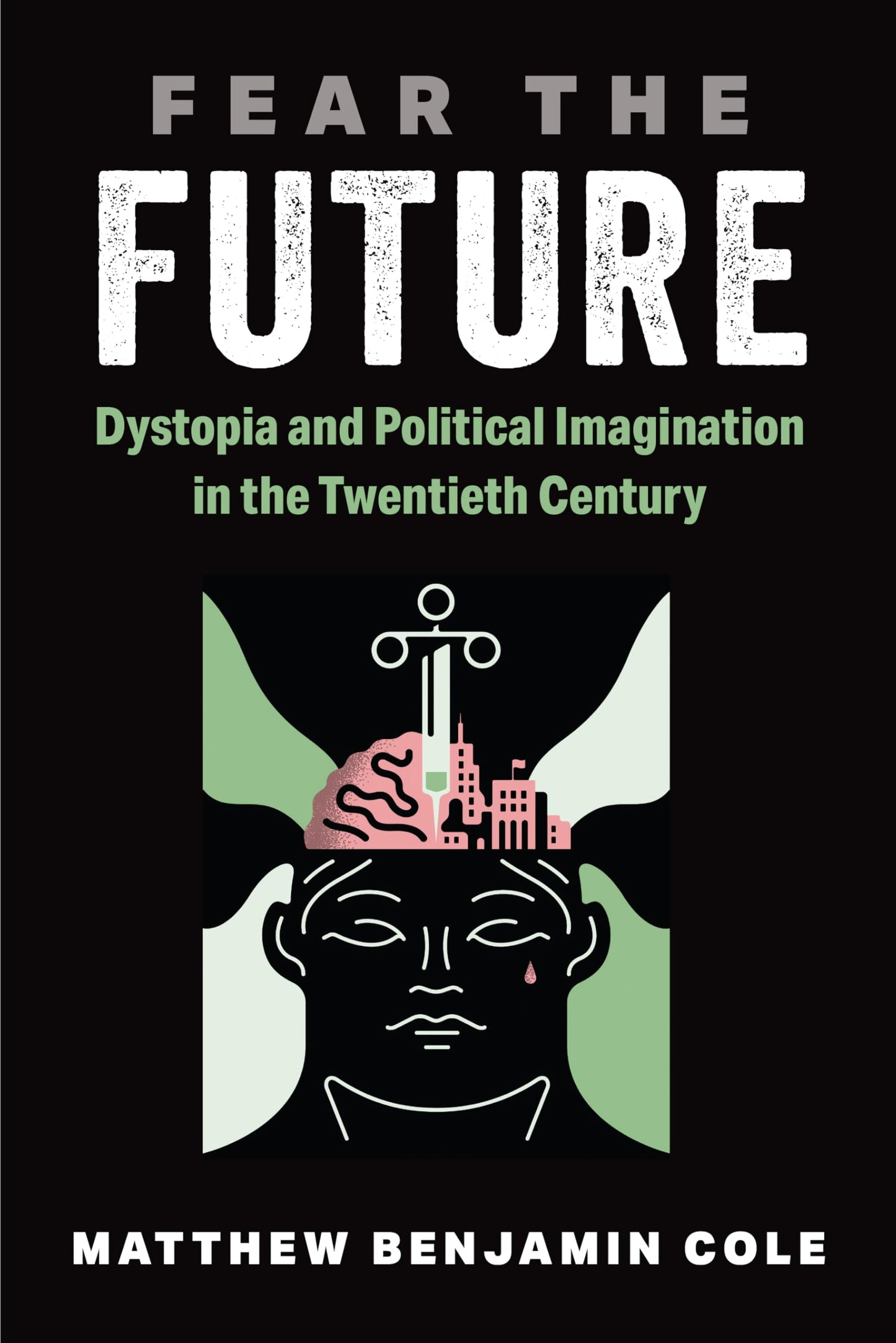University of Michigan Press
Fear the Future
Regular price
$34.95 USD
Regular price
Sale price
$34.95 USD
Unit price
per
Shipping calculated at checkout.
Couldn't load pickup availability
Title: Fear the Future
Author: Matthew Benjamin Cole
ISBN: 9780472057740
Publisher: University of Michigan Press
Published: 2025
Binding: Paperback
Language: English
Condition Note: New from the publisher
Publisher Description: After centuries of contemplating utopias, late nineteenth- and early twentieth-century writers began to warn of dystopian futures. Yet these fears extended beyond the canonical texts of dystopian fiction into postwar discourses on totalitarianism, mass society, and technology, as well as subsequent political theories of freedom and domination. Fear the Future demonstrates the centrality of dystopian thinking to twentieth century political thought, showing the pervasiveness of dystopian images, themes, and anxieties. Offering a novel reading of major themes and thinkers, Fear the Future explores visions of the future from literary figures such as Yevgeny Zamyatin, Aldous Huxley, and George Orwell; political theorists such as Max Weber, Hannah Arendt, Herbert Marcuse, Jürgen Habermas, and Michel Foucault; and mid-century social scientists such as Erich Fromm, Max Horkheimer, Theodor Adorno, David Reisman, C. Wright Mills, and Jacques Ellul. It offers a comparative analysis of distinct intellectual and literary traditions, including modern utopianism and anti-utopianism, midcentury social science, Frankfurt School critical theory, and continental political philosophy. With detailed case studies of key thinkers from the Enlightenment to the late twentieth century, the book synthesizes secondary literature and research from a range of disciplinary areas, including in political theory, intellectual history, literary studies, and utopian studies. This wide-ranging reconstruction shows that while dystopian thinking has illustrated the dangers of domination and dehumanization, it has also illuminated new possibilities for freedom.
Author: Matthew Benjamin Cole
ISBN: 9780472057740
Publisher: University of Michigan Press
Published: 2025
Binding: Paperback
Language: English
Condition Note: New from the publisher
Publisher Description: After centuries of contemplating utopias, late nineteenth- and early twentieth-century writers began to warn of dystopian futures. Yet these fears extended beyond the canonical texts of dystopian fiction into postwar discourses on totalitarianism, mass society, and technology, as well as subsequent political theories of freedom and domination. Fear the Future demonstrates the centrality of dystopian thinking to twentieth century political thought, showing the pervasiveness of dystopian images, themes, and anxieties. Offering a novel reading of major themes and thinkers, Fear the Future explores visions of the future from literary figures such as Yevgeny Zamyatin, Aldous Huxley, and George Orwell; political theorists such as Max Weber, Hannah Arendt, Herbert Marcuse, Jürgen Habermas, and Michel Foucault; and mid-century social scientists such as Erich Fromm, Max Horkheimer, Theodor Adorno, David Reisman, C. Wright Mills, and Jacques Ellul. It offers a comparative analysis of distinct intellectual and literary traditions, including modern utopianism and anti-utopianism, midcentury social science, Frankfurt School critical theory, and continental political philosophy. With detailed case studies of key thinkers from the Enlightenment to the late twentieth century, the book synthesizes secondary literature and research from a range of disciplinary areas, including in political theory, intellectual history, literary studies, and utopian studies. This wide-ranging reconstruction shows that while dystopian thinking has illustrated the dangers of domination and dehumanization, it has also illuminated new possibilities for freedom.

